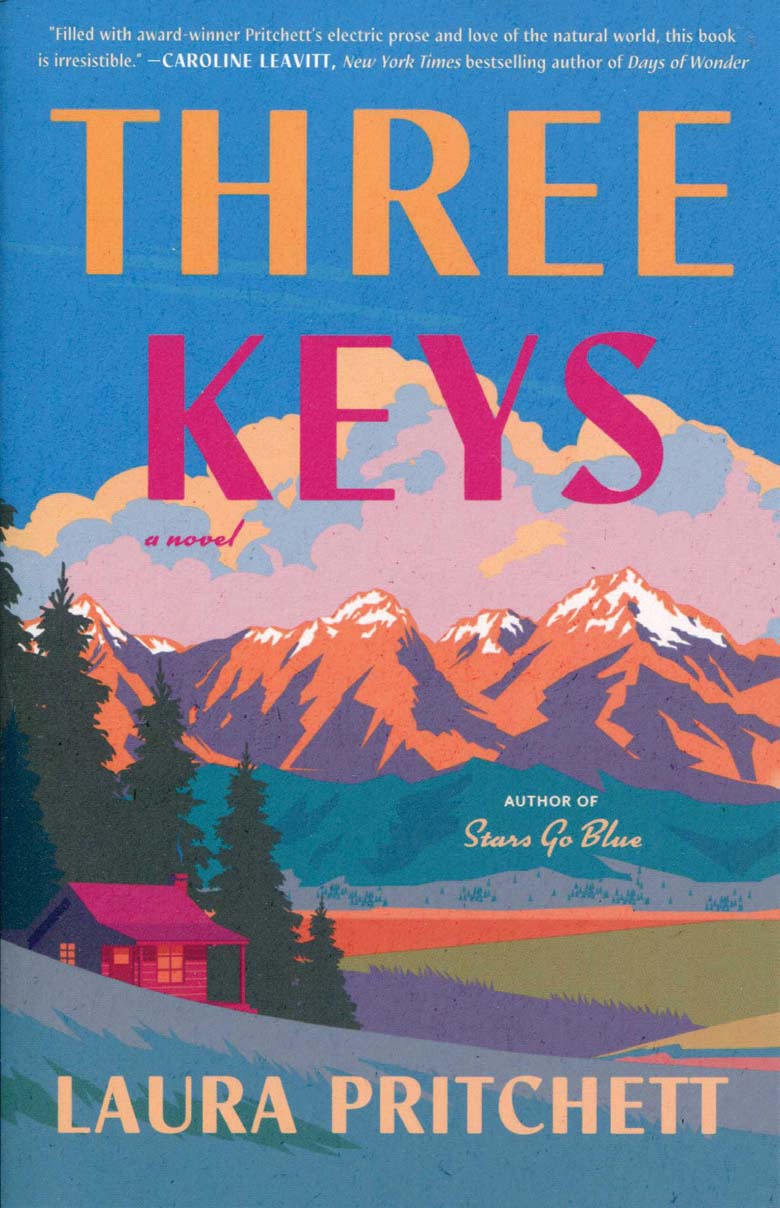
25 Sep Books: Reading the West
All journeys are journeys of the soul, as well as the body and mind. This is delightfully true for Ammalie, the hero of Laura Pritchett’s new novel, Three Keys (Dell, $20). Leaving her empty Chicago home — she’s recently widowed, middle-aged, and estranged from her son — Ammalie heads off into a journey of renewal, self-discovery… and petty crime. Her companions on this journey are newfound loneliness, a car named the Gray Goose, a desire to “change her brain,” a camp stove named Dude, a simmering guilt over her husband’s death, a sleeping bag named Fluffiest Red, and three keys from her and her late husband’s past that will get her into three far-flung homes that she has no business — and no legal right — to be in.
Ammalie’s adventure takes us to a guest house in the mountains of Colorado, an off-the-grid camper in the Arizona desert, and an art shack in New Zealand’s smallest beach town: three places connected to her late husband where, in re-visiting (albeit illegally), she hopes to find healing, closure, and that the keys she holds will open much more than doors.
Pritchett wields a sharp humor that highlights despair in a way that makes it both more cutting and profound to read, savor, and embody as we become Ammalie’s co-pilots on her precarious adventure. This is a wild romp of a novel that readers will shove into the hands of friends and strangers with a hearty, “Read this book! You’ll love it!”
Adding to the sheer pleasure of Pritchett’s story, her seasoned and polished handling of language takes the book into poetic realms. Each page has passages to read out loud for their inherent music and stunning imagery. Reading this book is akin to taking a master class in what makes a great sentence.
As always, Pritchett confronts the despoiling of the West and is determined to defend its wild spaces with intelligence, passion, and near-perfect storytelling. This novel, like The Blue Hour and Playing with Wild(fire) before it, further establishes Pritchett as one of the West’s most important writers, leading readers to only hope for more treasures from her pen.
Of Note
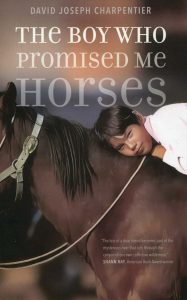
David Joseph Charpentier crafts a mosaic of the life of a young Cheyenne boy named Maurice Prairie Chief in The Boy Who Promised Me Horses (University of Nebraska, $24.95). He offers a picture of life on the Northern Cheyenne Reservation in southeastern Montana, where he met Prairie Chief and has worked as an English teacher at St. Labre Indian School. As he awkwardly begins to fit in with the local culture — testing out phrases like “skoden” (“let’s go then”) and the ubiquitous “ennit?” (“isn’t it?”), attending an all-night peyote ceremony, and learning the ins and outs of unrelenting, though good-natured, teasing — Charpentier slowly discovers that Ashland, Montana may be the home he will always come back to. As much a personal quest to find himself as a haunting portrait of Prairie Chief’s too-short life — in all its joy and tragedy, pain and hope, freedom and sorrow — The Boy Who Promised Me Horses is a testament to the power of friendship and the ability of a chance encounter to change a life forever.

In The Cloud Path: Poems (Milkweed, $18), Melissa Kwasny displays her consummate agility with the music of language and image, reminding readers of the power of poetry when it’s guided by a writer who has done the work — listening, watching, feeling — and is fully immersed in the vicissitudes of the world. Her poems dig deep into the natural wisdom of the earth and spill across the page like sunlight dancing across the surface of a spring creek. Kwasny never shies away from the pain of living in a dying world; rather, she embraces the chaos, finds the sacred and the profane, and brings it to the page with a euphonious musicality that has been too rare of late in contemporary American poetry. This collection is a welcome celebration of poetry’s roots as an aural art form, as reading any of these poems aloud — preferably outdoors surrounded by birdsong and swaying trees — will attest to.
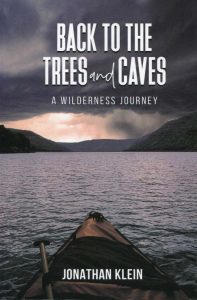
A 700-mile solo canoe trip to Canada’s Hudson Bay becomes a voyage into the self in Jonathan Klein’s Back to the Trees and Caves: A Wilderness Journey (Austin Macauley, $16.95). After retiring from the U.S. Forest Service, Klein sets out to find a level of wildness he no longer sees in the Lower 48. His thrilling (sometimes foolhardy) adventure narrative is interspersed with reminisces of his past life and ruminations on the state of the environment, which fit together to create a book that should take its place alongside works by Farley Mowat and Colin Fletcher. Klein deftly portrays the truth of the adage that the journey is the real destination.
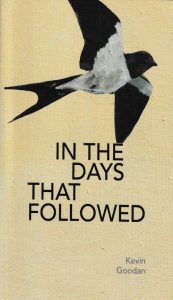
Kevin Goodan offers condensed gems of poetry with his new collection, In the Days that Followed (Alice James Books, $19.95). Each short poem is a momentary flash, like an almost-missed bird speeding past a window as an eruption of color and motion. The poems place the reader firmly in the moment — sometimes a beautiful moment and sometimes a painful one, but always a true one. When he writes, “It is morning, and today it will snow. / I’m standing in what light I can / Before the first flakes dampen against me, / The grass blades, the tall and leafless trees,” there is no place the reader can be but standing right there next to him. In these tight bursts of images Goodan displays a thrilling facility to observe the minutiae of the natural world, to inhabit the simple moments of the earth’s music, and to distill these observations into language that will continue to resonate in the body long after it’s been read.
Marc Beaudin is a poet, theater artist, and bookseller based in Livingston, Montana. He is the author of These Creatures of a Day, Life List: Poems, and Vagabond Song: Neo-Haibun from the Peregrine Journals, and his work is widely anthologized in publications dedicated to environmental and social justice.



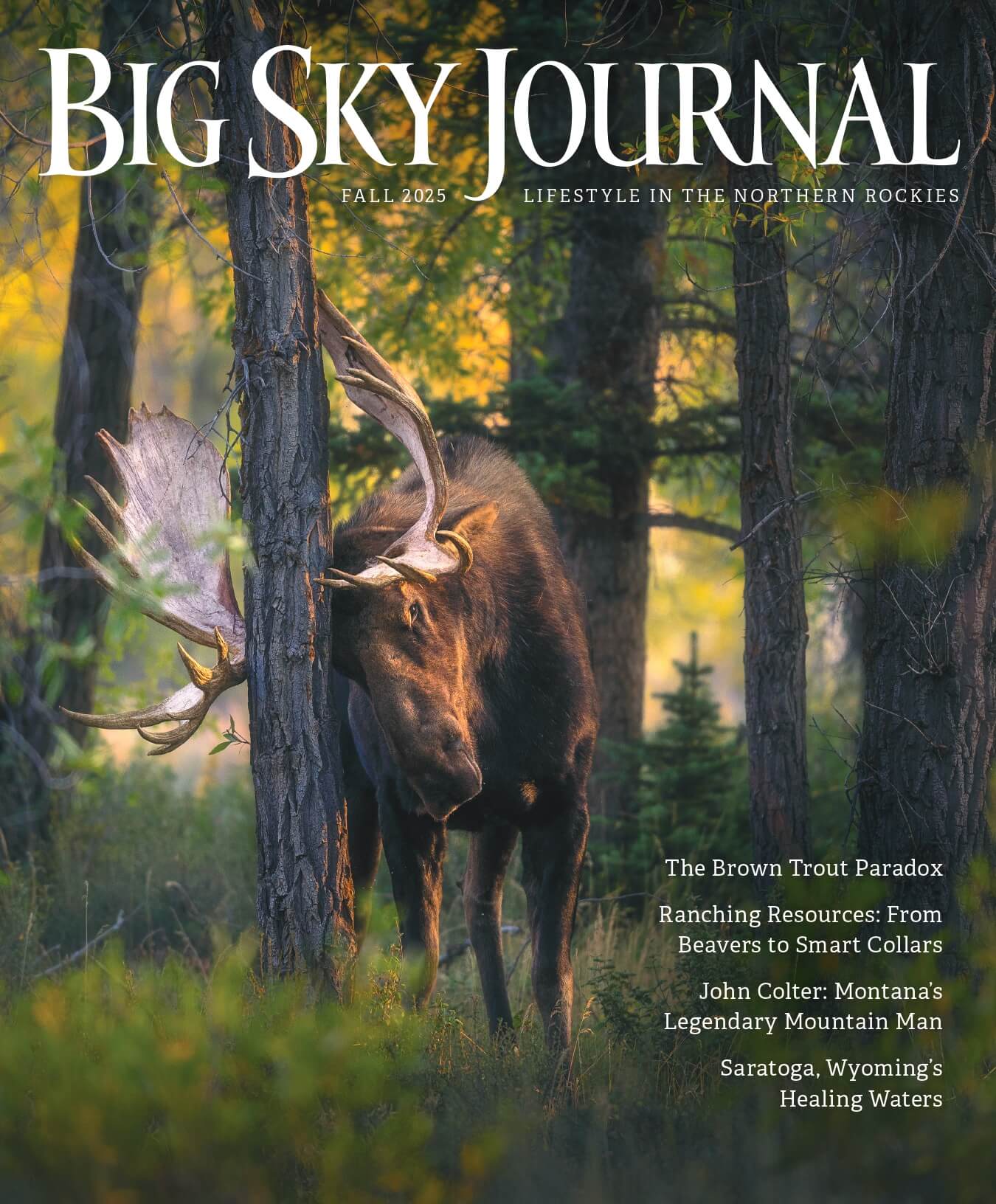
No Comments